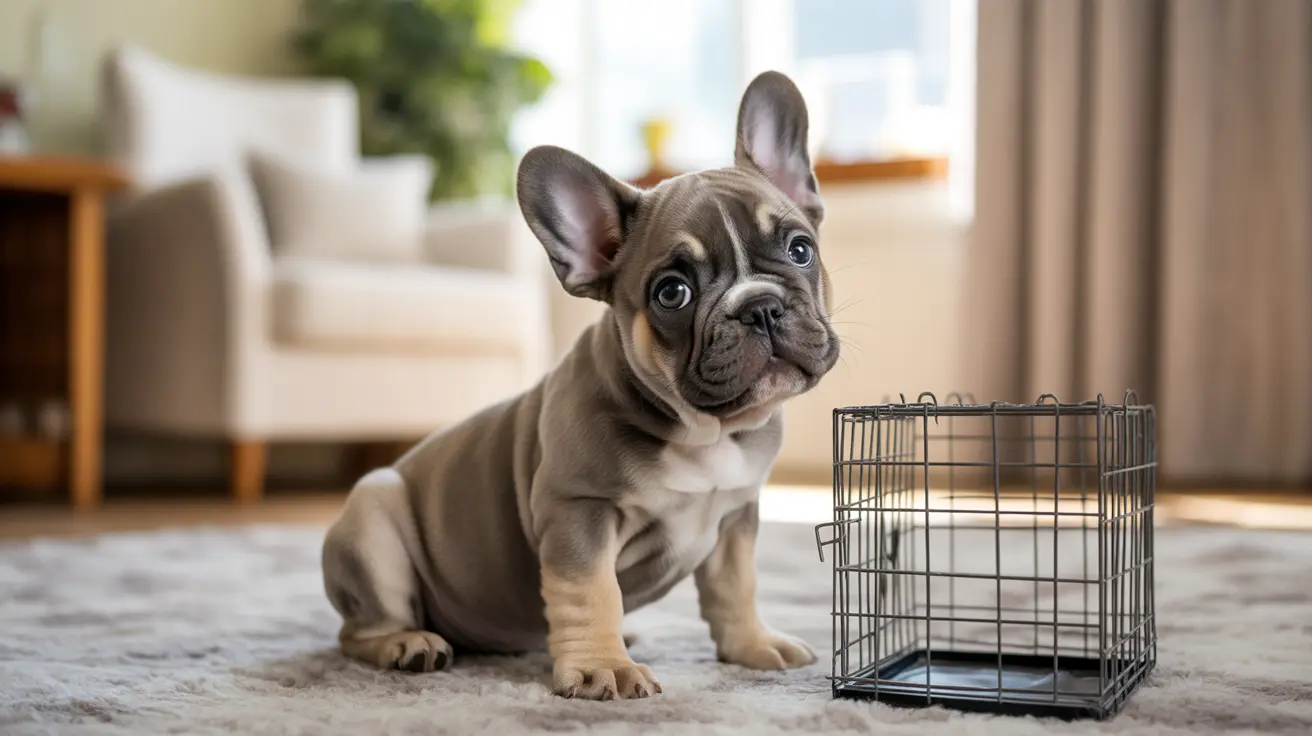Essential Foundations for Puppy Potty Training Success
Start potty training as soon as you bring your puppy home, typically around 8-12 weeks of age. Your puppy's bladder control increases with age, following the general rule that they can "hold it" for their age in months plus one hour. For example, a three-month-old puppy can typically hold their bladder for about four hours.
Create a consistent feeding schedule with three meals daily at the same times. This helps regulate your puppy's elimination patterns and makes accidents less likely.
Establishing an Effective Potty Training Schedule
Take your puppy outside during these key times:
- First thing in the morning
- Last thing at night
- After meals and drinks
- After waking from naps
- During and after playtime
- Before being left alone
For puppies under 12 weeks, plan potty breaks every 1-2 hours during the day. Gradually extend this interval as your puppy shows better bladder control and fewer accidents.
Crate Training: Your Secret Weapon
A properly sized crate is invaluable for potty training. Choose one that's just large enough for your puppy to stand, turn around, and lie down comfortably. Dogs naturally avoid soiling their sleeping area, making the crate an effective training tool.
Never use the crate as punishment. Make it a positive space with comfortable bedding and appropriate toys. When you can't directly supervise your puppy, the crate provides a safe space that supports their natural instinct for cleanliness.
Positive Reinforcement Techniques
Reward your puppy immediately after they eliminate outside. Use high-value treats, enthusiastic praise, or a favorite toy. This positive association helps them understand that outdoor elimination is desired behavior.
Choose a specific potty command (like "go potty" or "do your business") and use it consistently. Over time, your puppy will associate the command with the action, making it easier to communicate when and where you want them to eliminate.
Preventing and Handling Accidents
Accidents are a normal part of the learning process. When they happen, clean thoroughly with an enzymatic cleaner to remove all traces of odor. Never punish your puppy for accidents – this can create fear and anxiety around elimination, making training more difficult.
Watch for warning signs that your puppy needs to go: sniffing, circling, whining, or suddenly leaving play. When you see these signs, immediately take them to their designated potty area.
Frequently Asked Questions
How often should I take my puppy outside to potty based on its age?
Take puppies under 12 weeks out every 1-2 hours. For older puppies, use the age-plus-one rule: a 4-month-old puppy can typically hold it for 5 hours maximum. However, more frequent breaks are always better during training.
What is the best way to use a crate for potty training a puppy?
Use a properly sized crate that's just big enough for your puppy to stand, turn around, and lie down. Place them in the crate during unsupervised times and overnight. Take them directly outside when you let them out of the crate.
How do I stop my puppy from having accidents in the house?
Maintain consistent supervision, stick to a regular schedule, and reward outdoor elimination. Use gates or closed doors to limit access to the house, and clean accidents thoroughly with enzymatic cleaner to prevent repeat incidents.
Why is positive reinforcement important when potty training a puppy?
Positive reinforcement creates a clear association between desired behavior and rewards, making your puppy more likely to repeat that behavior. It also builds trust and confidence, leading to faster learning and better results.
What should I do if my puppy has a potty training setback or regression?
Return to basics: increase supervision, restart more frequent potty breaks, and reinforce successful outdoor elimination. Check for medical issues if the regression is sudden or prolonged. Remember that setbacks are normal and temporary.
Conclusion
Successful puppy potty training requires patience, consistency, and positive reinforcement. By following these guidelines and maintaining a regular schedule, you'll help your puppy develop good habits that last a lifetime. Remember that every puppy learns at their own pace, and celebrating small victories along the way will make the process more enjoyable for both you and your new furry friend.






